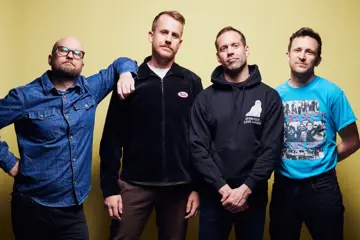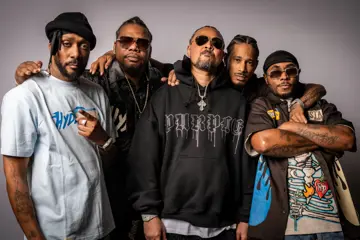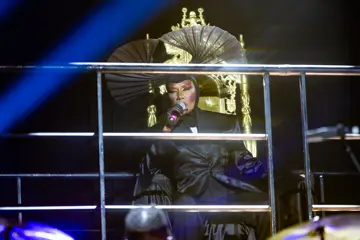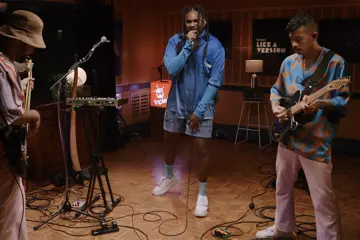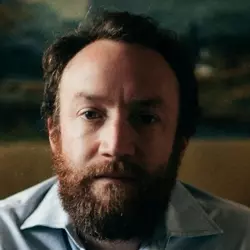 Sean McMahon
Sean McMahonThe epitome of the travelling musician, local alt.country artist Sean McMahon has been steadily clocking up frequent flyer miles for the last six years. After paying his dues and releasing two albums with country rock quartet Downhills Home a few years ago, McMahon then put together his first solo album, Welcome To Gippsland, in 2009 with help from the likes of Laura Jean and Liz Stringer. The gravel-voiced songsmith then took off on a jaunt through the musically historic hotspots of North America, igniting the spark that has led to his latest record, Live At The Last Hotel.
“We landed in LA and we had a gig on a Wednesday but we didn't take any guitars with us. We didn't have the appropriate visas to bring them,” McMahon explains. “So we had three days to go guitar shopping. We went up to San Francisco and back to LA, saw Mississippi, Nashville, Austin and New York as well. We had some gigs in Austin and one in New York.”
Being one of the most important musical cities in the world, you'd think that McMahon would have made the most of New York City. He did, it seems, but not in the way you'd think. “It was a quiet joint in New York. We were playing basically for the hat. They said we could play for however long we wanted to in the three hours they gave us,” he laughs. “They had tequila and beer specials so we ended up just sitting there with a few locals until there was half an hour left. Then we just played about four songs.”
Obviously not one to let the odd thin crowd get in the way of a good time, McMahon brushed off his dodgy Big Apple experience and kept moving through the States, eventually landing at home with an antique 1930s Kay parlour guitar and an idea for a new record in his mind. He got to work quickly, recruiting Alison Ferrier on violin, Tim Murphy on double bass and legendary guitarist Jeff Lang to man the producer chair, although the word 'producer' could probably be adjusted to 'collaborator' in this situation, especially considering McMahon's singular vision for his music.
Don't miss a beat with our FREE daily newsletter
“I've got pretty strong ideas of what I want to do and the idea of this record was to make something that was quite sparse. I wanted it to be more about the song itself than anything else. The lineup was so small, just the double bass and violin, that I really wanted to practise restraint. I always knew that this was how I wanted to record it so there wasn't actually that much room for production on it. Jeff did such a great job with mic-ing up the room and all the instruments that there really wasn't any need to change anything in the recording process.”
Often when coming out of a full band situation, as McMahon has done in writing this record, artists espouse the importance of stripping things back to the bare bones of the song, simplifying and looking more to the organic side of making music than any preoccupation with the bells and whistles of the recording studio. This was very much a philosophy ehind Live At The Last Hotel.
“I did a bit of playing around with overdubs early on with this album, and I really enjoy the whole creative aspect of the studio,” McMahon explains. “It was funny with this one though because I couldn't really do that. It didn't work and there was no room for it. It didn't matter what I tried, and I love making studio records, for some reason I wasn't allowed to do it that way. I thought I'd be working harder, but in the end the songs didn't want it.”




